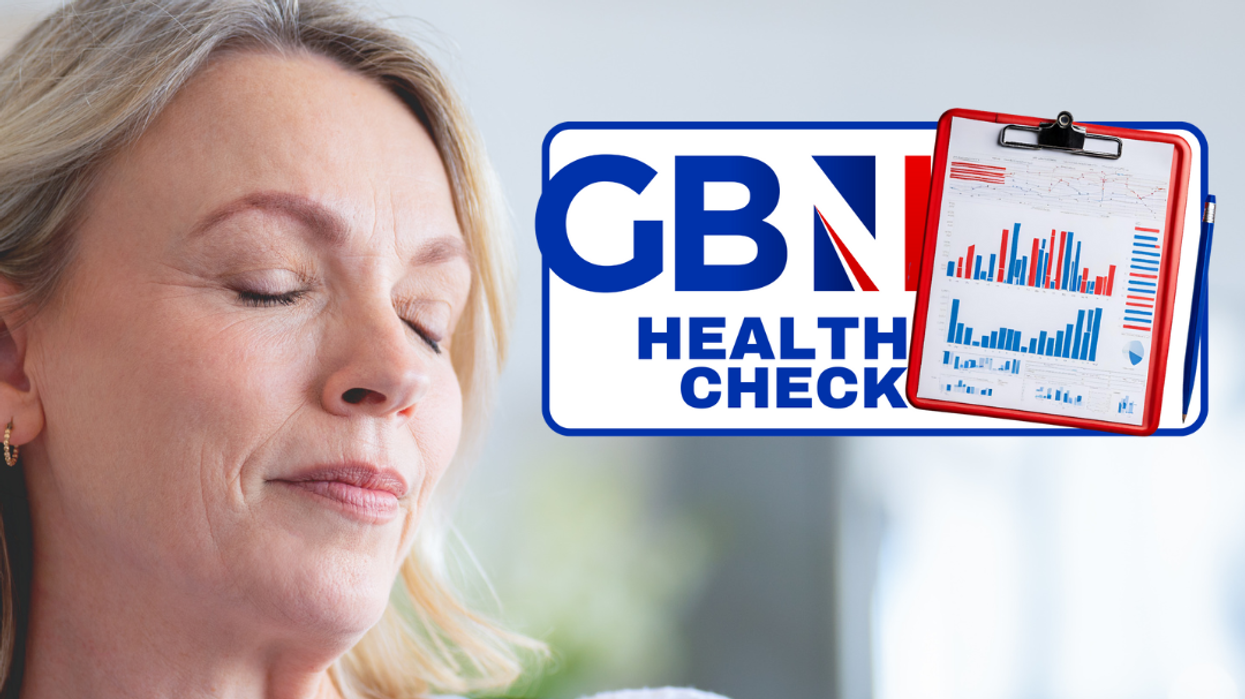GB News Health Check: What is coffee actually doing to your body? Experts weigh up the pros and cons

Coffee provides a variety of health benefits, including boosting brain and physical health
|Getty Images

In this week's GBN Health Check, coffee comes under the microscope. Is our love affair with the natural stimulant a net positive or negative? Our health editor Adam Chapman puts it to a biohacker, doctor and psychotherapist
Don't Miss
Most Read
More than two billion cups of coffee are consumed every day.
It is grown in more than 70 countries and helps support the livelihoods of roughly 125 million people.
The demand is dizzying and yet not surprising.
For anyone in a fast-paced profession, such as your correspondent, coffee is a lifeblood.
Caffeine acts as a central nervous system stimulant, meaning it increases activity in your brain and nervous system. It also increases the circulation of chemicals such as cortisol and adrenaline in the body.
This speeds up breathing, heart rate, mental alertness and physical energy.
For some people, this spells greater productivity. Others think jitters or nauseousness.
If you can stomach it, coffee can provide a variety of health benefits, hundreds of studies suggest.
Many of the benefits are due to the high antioxidant content in coffee, Dave Asprey, founder of Bulletproof and Danger Coffee, tells GB News.
"Coffee contains many different antioxidants, but something most people don’t know is that caffeine is also an antioxidant that’s great for your brain," he explained.
A 2005 study showed caffeine could improve short term memory recall while another study showed that coffee was able to produce the same mental state as Qi Gong exercises.
The caffeine in coffee can even protect against Alzheimer’s, evidence suggests, and studies show that women who drink more coffee are less likely to suffer memory loss later in life.
And for those dealing with mental fogginess or mild depression, a moderate coffee intake could provide an "uplifting jolt", pyschotherapist Claire Law says.
Indeed, in an analysis on observational studies on the relationship between caffeine and depression, caffeine consumption was found to decrease the risk for depression.
"Coffee can absolutely enhance mental health when consumed in moderation," added Ms Law.

Studies show that women who drink more coffee are less likely to suffer memory loss later in life
|Getty Images
Coffee is not only great for your brain - it’s great for your physical fitness too, says Doctor Tom Jenkins, a GP, sport and exercise physician.
"Caffeine blocks brain receptors responsible for fatigue, allowing you to push through longer aerobic sessions," he explained.
It's fat-burning prowess is not to be sniffed at either, as caffeine "revs" up your metabolism and encourages your body to burn fat, notes Doctor Jenkins.
If you’re aiming to shed those extra kilos, consider having a small coffee before your workout, he advises.
In one study, caffeine had an appetite-reducing effect in men, but not in women, making them eat less at a meal following caffeine consumption.
What's more, caffeine can temporarily suppress your appetite, which might help you stay on track with your nutrition goals, the sport and exercise physician adds.
Physical fitness is intimately tied to good heart health and evidence suggests coffee has a role to play here too.
In a large study published in the European Journal of Preventive Cardiology, researchers found people who drank up to three cups of coffee a day had a healthier heart and a lower risk of dying of any cause.
Those who drank more than three cups had stronger hearts, but not a lower risk of death.
This brings us on to the potential risks of drinking coffee.
Moderation is advised and not everyone responds to coffee in the same way. The NHS tells people not to drink more than four cups a day, as it may increase your blood pressure, although this effect is usually temporary and is minimised over time if you drink caffeinated drinks regularly.
Coffee has been linked to high cholesterol but the evidence is mixed and inconclusive.
For example, a 2023 study, of the general population suggests a link between higher coffee consumption and higher levels of low-density lipoprotein (LDL) cholesterol - this is known as the "bad" type that's associated with heart disease.
However, the same study suggests there is no relation between coffee consumption and heart health.
According to Mr Asprey, the way the coffee is processed can present hidden dangers.
"People don’t realise it, but different processing methods introduce radically different amounts of potent toxins into your coffee depending on how much and how long the coffee ferments and how damaged the beans were before roasting," he warned.
The biohacking entrepreneur claims most coffee you can purchase today contains high levels of carcinogenic mycotoxins.
Mycotoxins are toxins formed by moulds. They can cause jitters and long-term "damage" to your health, Mr Asprey claims.
Research is mixed on this front. Evidence shows that mycotoxins are present in a large percentage of coffee beans and make it into the final drink.
However, a 2021 study found that there was no historical evidence to be able to say that ochratoxin A - a type of mycotoxin - is acutely toxic if consumed from coffee or other sources.

Mr Asprey claims most coffee you can purchase today contains high levels of carcinogenic mycotoxins
|Getty Images
The picture appears largely positive but that doesn't mean coffee is a panacea.
"Its benefits are highly individualized based on genes, tolerance levels, dosage, and underlying mental health factors," explained Ms Law.
For those predisposed to anxiety disorders or insomnia, coffee could exacerbate symptoms like nervousness, restlessness, and disrupted sleep patterns, she says.
"And let's not forget about the afternoon caffeine crash that can leave you feeling lethargic and irritable."
If coffee feels like a "mental health ally" for you, keep it to one to two cups per day and cut off before mid-afternoon to avoid sleep disruption, the pyschotherapist recommends.
As with most things in life, a balanced approach is best when it comes to your morning cup of joe. Now, go and pop that kettle on.










